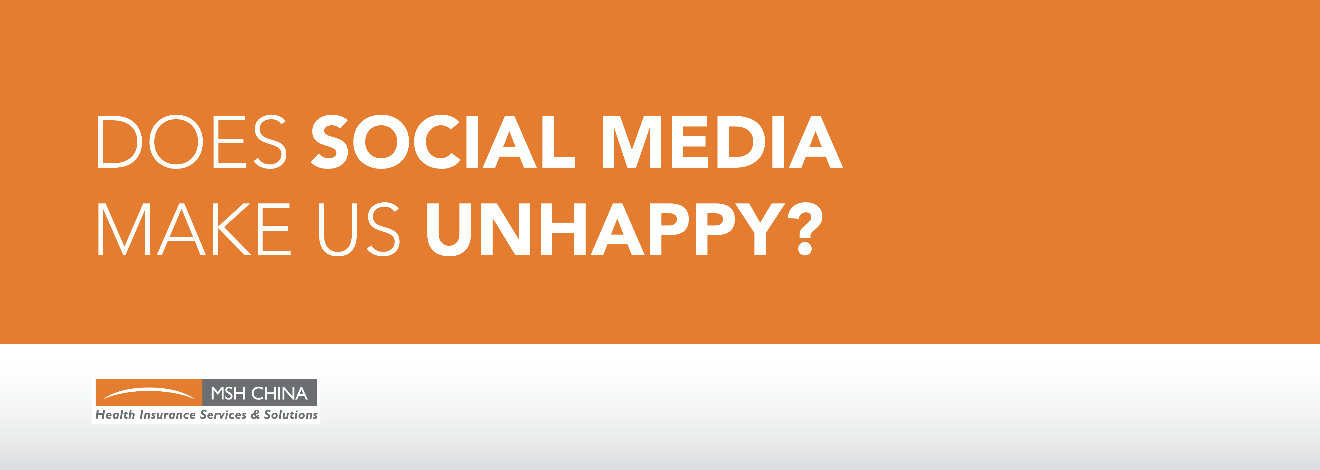Back to list
2020-01-13 14:50:47

Is using Facebook or
Instagram causing depression?
Everyday new studies reveal the negative impact of
Facebook, Twitter, Snapchat and many others on people mental health. According
to several studies, young adults with the higher rate of depression were the
ones spending the most time on social media platforms like Facebook and
Instagram.
The problem is not going to slow down: social media platforms
are rapidly settling themselves into all aspects of our lives. It’s generally complicated to state if Instagram and
Facebook are whether or not the reason why they are suffering from depression. Maybe
those who are suffering from depression and loneliness are more likely to use
social media as a way of reaching out. However, a recent study clearly showed a
causal link.
Does it really cause
depression?
The negative impact of using social media on people’s
mental health, especially depression and loneliness has been indeed linked in a
recent study published in the Journal of Social and Clinical Psychology.
What researchers found is that “if you use less social
media, you are actually less depressed and less lonely, meaning that the
decreased social media use is what causes that qualitative shift in your
well-being” said Jordyn Young, co-author of the study.
The study was based on 143 students split in 2 groups.
First group had to keep up with their normal social media use and the second
group had to limit their access to social media. To compare participants, researchers spotted different
points of well-being: social support, fear of missing out (FOMO), loneliness,
anxiety, depression, self-esteem, autonomy and self-acceptance.
At the end of the study, results were pretty clear: the
second group, with a limited online access, had better mental health outcomes.
33%.
Beginning of 2007, smartphone were launched. 10 years later
an impressive 92% of teens and young adults owned a smartphone. In the
meantime, the author of the study, a psychologist from San Diego State
University observed an increase in depressive symptoms correlates with
smartphone adoption.
Results showed an increase of 33% in depressive symptoms
between 2010 and 2015 of over half a million teenagers.
Today’s generation of teenagers and young adults spend much
less time connecting in real life with their peers but more time online, mostly
through social media platforms. Unfortunately, the connections they are
creating electronically are less deep and emotionally unsatisfying, making them
feeling socially isolated.
The opinion of Alexandra Hamlet, PsyD, a clinical
psychologist at the Child Mind Institute is that “the less you are connected
with human beings in a deep, empathic way, the less you’re really getting the
benefits of a social interaction.”
But there’s an exception to this correlation: girls who are
high users of social media but in the meantime keep up a high level of real
social interaction don’t show any increase in depressive symptoms compared to those
who interact less in person.
Social media can sometimes be live saving: some teenagers
and young adults can be socially awkward, not successful in connecting with
others offline. Some others are geographically isolated or don’t feel accepted.
For them, online interaction is then vital.
Self-esteem
Beside depression, those apps are also associated with
anxiety, lower self-esteem, poorer sleep quality, inattention and
hyperactivity. The increase of depression especially among teenage girls
is often explained with a loss of self-esteem. Every day they are comparing
themselves to hundreds of perfect Photoshopped images from friends, influencers
or celebrities - Skinnier, prettier, richer or more popular.
These posts don’t really reflect the reality but become
normal and real making them feeling less self-confident. Instagram is
especially pointed out in this study, it is the platform where teenagers